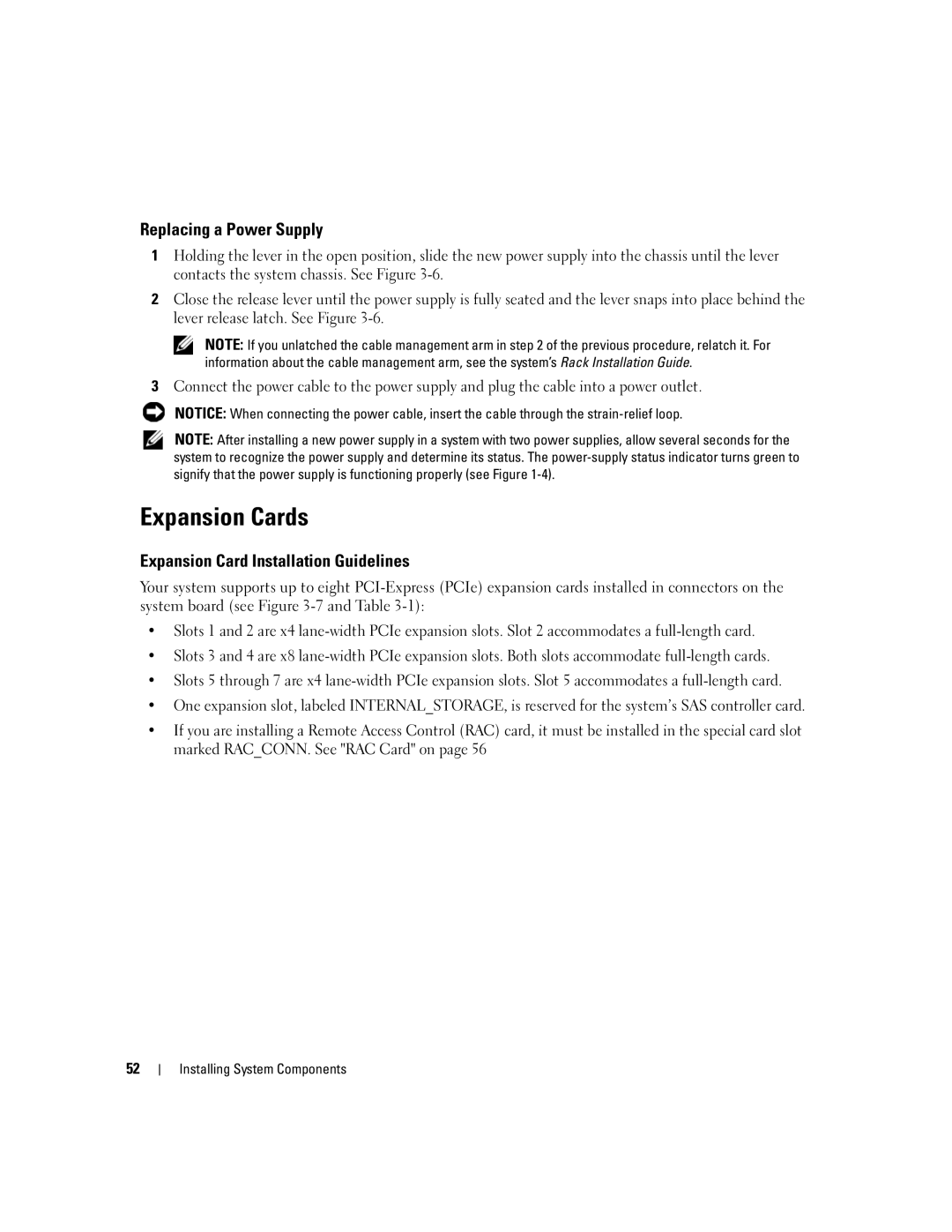Replacing a Power Supply
1Holding the lever in the open position, slide the new power supply into the chassis until the lever contacts the system chassis. See Figure
2Close the release lever until the power supply is fully seated and the lever snaps into place behind the lever release latch. See Figure
NOTE: If you unlatched the cable management arm in step 2 of the previous procedure, relatch it. For information about the cable management arm, see the system’s Rack Installation Guide.
3Connect the power cable to the power supply and plug the cable into a power outlet.
NOTICE: When connecting the power cable, insert the cable through the
NOTE: After installing a new power supply in a system with two power supplies, allow several seconds for the system to recognize the power supply and determine its status. The
Expansion Cards
Expansion Card Installation Guidelines
Your system supports up to eight
•Slots 1 and 2 are x4
•Slots 3 and 4 are x8
•Slots 5 through 7 are x4
•One expansion slot, labeled INTERNAL_STORAGE, is reserved for the system’s SAS controller card.
•If you are installing a Remote Access Control (RAC) card, it must be installed in the special card slot marked RAC_CONN. See "RAC Card" on page 56
52
